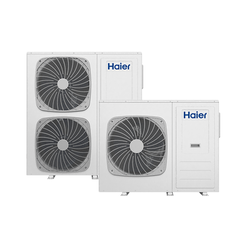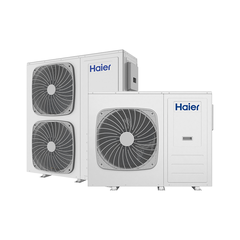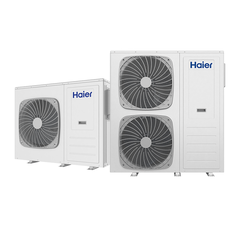1. Introduction to Heat Pumps in Europe
Heat pumps are a growing segment of the European HVAC (heating, ventilation, and air conditioning) market, especially given the continent's commitment to reducing carbon emissions. They are seen as a crucial technology for decarbonizing residential and commercial heating, which historically has relied heavily on fossil fuels. With stringent environmental policies like the EU's Green Deal and increasing energy efficiency regulations, heat pumps are rapidly gaining traction across Europe.
2. Why Heat Pumps Are Important
Heat pumps work by transferring heat between indoor and outdoor environments, making them highly efficient. Unlike traditional boilers or furnaces that burn fuel, heat pumps use electricity to transfer existing heat, meaning they can provide a lot of heating or cooling with relatively low energy consumption.
Key benefits include:
Energy Efficiency: Heat pumps can achieve efficiency levels of 300% to 400%, meaning they produce three to four times the energy they consume.
Lower Carbon Emissions: As Europe moves away from fossil fuel-based heating, heat pumps offer a low-carbon alternative, especially when paired with renewable electricity sources.
Versatility: Heat pumps can provide both heating and cooling, making them useful year-round in different climates.
3. The European Market for Heat Pumps
Europe is one of the largest and fastest-growing markets for heat pumps globally, with key markets in countries such as Germany, France, the UK, Italy, and the Nordic countries. These regions have experienced strong growth in installations due to:
Government Incentives: Many European countries offer subsidies or tax incentives to encourage the adoption of heat pump technology.
Energy Efficiency Targets: The EU's commitment to achieving climate neutrality by 2050, alongside energy performance standards for buildings, is driving the demand for energy-efficient heating solutions.
Environmental Awareness: European consumers are generally more conscious of their environmental impact and are more likely to invest in sustainable technologies.
4. Haier's Role in the Heat Pump Industry
Haier, a leading global manufacturer of home appliances, has expanded its product range to include innovative heat pump solutions. Although traditionally known for refrigerators and air conditioners, Haier is now a key player in the HVAC industry with advanced heat pump products. The company aims to leverage its technological expertise and global supply chain to gain market share in the growing European heat pump market.
Key Features of Haier's Heat Pump Systems:
Energy-Efficient Technology: Haier's heat pumps are designed to meet the high efficiency standards required in Europe, often incorporating features like inverter technology that allows the system to adjust its output based on real-time heating and cooling needs.
Eco-Friendly Refrigerants: To comply with Europe's strict environmental regulations, Haier uses low Global Warming Potential (GWP) refrigerants such as R32 in many of its systems.
Smart Home Integration: Haier's heat pumps are often compatible with smart home systems, allowing users to control heating and cooling remotely via apps, and monitor energy usage more efficiently.
Advanced Air Quality Control: In addition to heating and cooling, some of Haier's heat pumps offer integrated air purification features, improving indoor air quality, which is an increasing concern in urban areas.
5. Challenges and Opportunities for Haier
Challenges:
Competition: Haier faces stiff competition from established European and international brands like Daikin, Mitsubishi Electric, Viessmann, and Bosch, which have a strong presence in the heat pump sector.
Regulatory Compliance: Europe's heating market is heavily regulated, and manufacturers must ensure that their products meet local energy efficiency standards, safety certifications, and refrigerant regulations.
Consumer Awareness: Although awareness about heat pump technology is growing, some regions, particularly in Southern Europe, are still relatively underdeveloped markets for heat pumps compared to Northern Europe.
Opportunities:
Growing Demand: With the EU aiming to phase out gas boilers and promote electrification of heating, the heat pump market is set to expand significantly.
Technological Innovation: Haier has opportunities to innovate by enhancing the efficiency of its heat pumps, improving smart integration, and developing systems that are even more environmentally friendly.
Expansion into New Markets: While Northern Europe has been the primary driver of heat pump sales, the southern regions of Europe, where cooling demand is higher, offer potential for combined heating and cooling systems.
6. Conclusion
The European market for heat pumps is expected to grow significantly in the coming years as a result of government policies, energy efficiency standards, and increasing environmental awareness. Haier, with its innovative technology, focus on energy efficiency, and strong brand presence, is well-positioned to capture a significant share of this market. However, the company will need to navigate a competitive landscape and ensure regulatory compliance as it seeks to expand its presence in Europe's heating and cooling industry.




